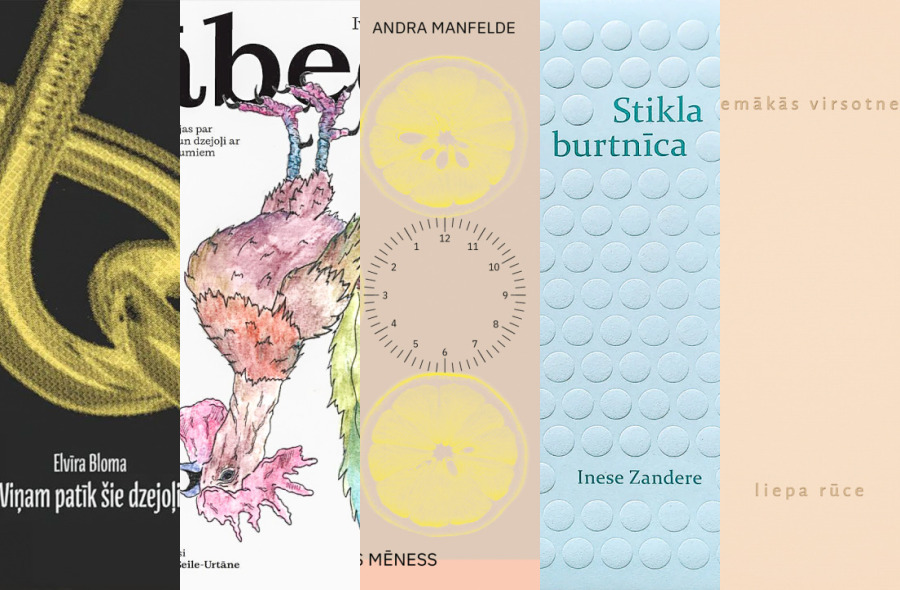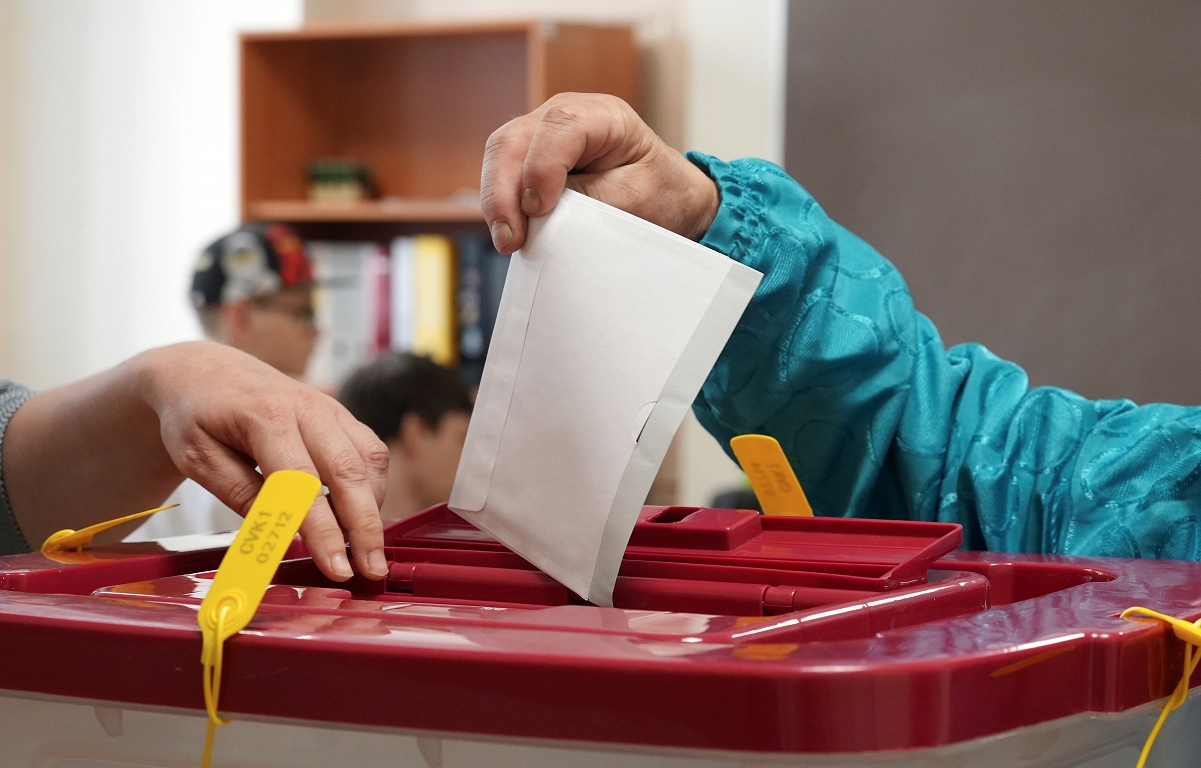Poetry selection for those who do not read / day

The Latvian poetry reader is currently in a luxury – feeling that « nothing to eat » and « nothing to wear » because the fridge is full and the wardrobe too. Several years ago, we were in a situation where it is difficult or even impossible to read all the prose of Latvian to evaluate and select the best, but now the poetry is coming to a similar situation. Therefore, in this category, the Latvian Literature Awards (Laligaba) nominations – both the long and short list – are not only an honor for the authors, but also the recommendation of readers who are unable to devote all their lives to literature.
Don’t love all poetry
2024 and now, in 2025, poetry collections are not only high quality, but also very diverse; They surprise, confuse and give the enjoyment of languages and feelings. Laligab’s poetry nominations mark books that should definitely not miss the poetry lover, and at the same time offer an interesting selection of poetry for beginners. Because, of course, poetry is a type of literature that requires some training to read and understand, and do not require you to love all poetry – it is more important to find the poetry that is voting on the perception of the world and the big (or small) issues.
In a way, such poetry reading training is offered by Ivars Steinberg Alphabet (Walter fork, 2024), or in the schoolmaster, providing small essays on letters that contemplate their phonetics, form, history, and metaphysical connotations, small practical tasks in writing poetry and thus written samples of poems. The text is complemented by Illustrations of Justine Salem-Pretane. And this textbook for beginners of poetry is exactly what the class hooligan, clown and the jumper, the everlasting headache of teachers and the horrendous source of horrendous excitement: it has a huge amount of reference to sex, drinking and other school benches, and illustrations add to this » Moreover, this bully is extremely erudite, a virtuoso poet in Latvian poetry fields in the use of the Latvian poetry field – what will you do? The small tasks that the reader/pupil must complete also varies from playfully sincere to almost unfulfilled. And with all this pounding, Ivars Steinbergs also manages to mark the instrumentation of poetry (and skilled reading): of course, as the alphabet is entitled to, phonetics, but also a brief introduction to the history of poetry and a wide range of poems. The seemingly bullying book turns out to be so thorough that its careful reading and execution would require insane time and energy.
In conversation with the inner darkness
When it comes to experimental literature, you should naturally come to Elvira Blom’s Second Collection of Poems He likes these poems (Punctum, 2024). This small and visually surprising booklet (design author Anete Krumina) seems to be most likely to read as an accurate dialogue with the author with the reader. Moreover, not in the collection of poems, an imaginary reader whose role is previously marked, but the reader, yes, you. The theme of the book is the questions, questionnaires and encouraging provocations that refer to both different tests and self -help books, but do not allow any of these genres typical and general. Asking questions and inviting the reader to record answers, Elvira Bloma, as a skilled interviewer, entails in a conversation with his own darkness and complexity, while maintaining an ironic distance, but at the same time, almost brutally injured with a reminder of all those stupid failures and weaknesses that the reader (yes, In this dialogical frame, the collection poems sound as the notes of the author, the anecdotes, tell them from life and feelings that invite them not to « enjoy », but to get involved in the conversation, react with « Akdies, as I understand this » and « Well, you didn’t have to do it ». True, such a description causes the poetic and intonative polyphony of the collection of poems: from a cool joke to vulnerable and disarming sincerity.
For fragile values
In order to cut off the possible stereotype that experiments are already engaged in those young and crazy poets, you need to highlight Inese Zanderes Glass Book (Neputns, 2024). Of course, Inese Zander cannot be put in a simple category, but if it should be, this stock could certainly be ranked between the philosophical, thoughtful and at the same time politically current poetry work. And such poetry is vital nowadays: trying to understand hatred, violence, insensitivity and simply dull stupidity; In an attempt to understand your place and possible actions in the world that seems to be collapsing and are in front of our eyes. Poetry and at the same time irreconcilable tone, its unshakable existence for fragile and integral values, sometimes bitterness, but above all, faith in the language, and thus allows the person to believe that it is possible to continue to act, continue to think and continue to hurt as long as it takes. At the same time, in the form of poems, Zander is surprising, almost contrasting playful, with amazing ease of playing both language tricks, heartfelt conversations with children and long observations of the object world, sometimes completely blurry of the imaginary boundary between things, human and language worlds.
Reduces anxiety over the future
But if the poetry is a bit of eskeepism, it is time to take Andras Manfeldes The descending honey moon (aminors, 2024). This is an internal, poetic and extremely paint collection – with the latter, not only the saturated, sensually grabbed imagery, but also the references to the world of painting in which it seems to be possible to disappear and shelter from everything. As the world of paintings, the world of Andras Manfelde is felt about the bodily presence, the relationships that are most accurately characterized by the touch, and a sense of nature in which the swing, sea or night becomes full -fledged interlocutors. This presence is not comfortable both in time, place and in your body – it seems saturated with feelings and emotions, and the constant interior and external world is aligned or even confronted, but it is also healing. Referring to the first promised Eskeepism – this poetry does not offer escape somewhere « away » from reality, but on the contrary, resembles and enlarges reality that cannot be escaped, full and sensitive experiences that, when embodied in the present, slightly diminishes anxiety about the future.
The slowest read collection
This spectrum, from conceptualism to new sincerity, from experiments with letters to hidden symbolism, from childhood memories to political relevance, from hermeneutically closed poems to sensitive and direct scope of bodily experiences – is covered by Liepas Ruze’s second collection of poems The lowest peaks (Latvian media2024). In this book, the author has spoken in a wide and expressive range, while noticing the potential of the poem to go in exaggeration. The lower peak There seems to be thematically and intonatively the most diverse collection of this sample, either in anticipation of the reader’s equally widespread skills of poetry, or by offering poems as a wide range of things – one of them will definitely like the reader. Liepa Rouce’s poetry does not challenge the reader to direct dialogue, only opens the door to participation in a surprise when it turns out to find an ancient memory, imagination or dream of fragments and adhere to them with a whole new world of experiences, and slowly, carefully mark the poem by selecting and, believed to be repeated many times every word and image. Therefore, this also seems to be the slowest collection, because almost every poem has to find its own unique key or type of reading.
These five collections of poems are far from the only good in last year’s poetry. Attention is also deserved of 2024 Poetry Debut nominations: Eve’s guests time (neputns), Liva Martha’s roses Structure (punctum) and Cynthia Sudmales on my tongue (Walter’s fork)as well as several collections of poems that remain « behind the strip » in intense competition. Also, the range of poetry books of this year is so impressive that it is clear: « So many good books that there is nothing to read » the problem will only become more pressing.







